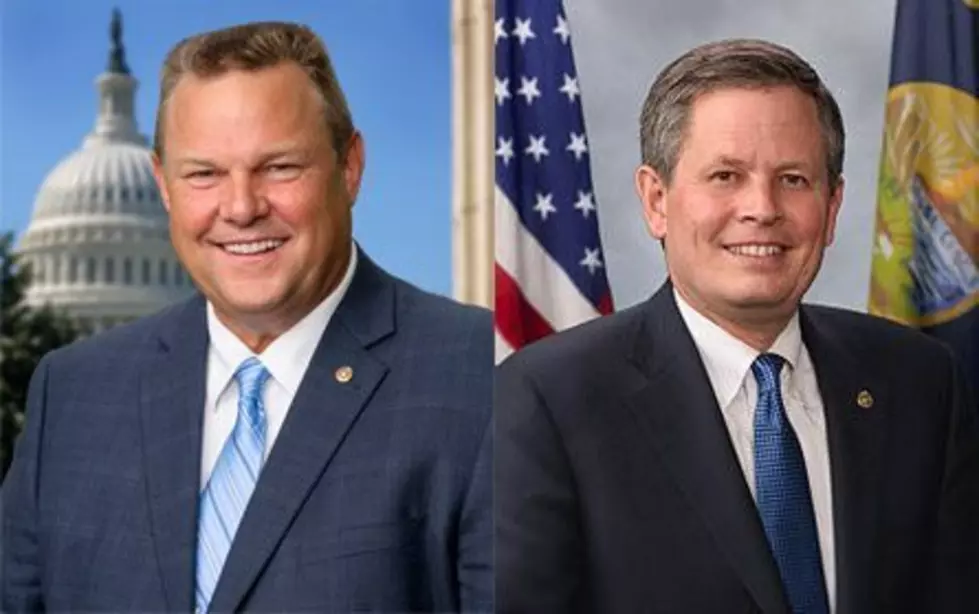
Watchdogs cheer Tester, Daines e-filing requirement for campaign documents
WASHINGTON (Courthouse News) – President Trump’s signature on September’s omnibus spending bill has earned him strange bedfellows: a campaign finance watchdog group who has spent years condemning him.
Buried deep in the budget bill signed this month by the president are new requirements for members of the Senate to electronically file their campaign finance reports, a change from the current system requiring manual data entry. It’s a move made by the House years ago and has been long sought by accountability advocates.
“This will save taxpayers nearly $1 million every year, enhance transparency and help to increase accuracy,” said Trevor Potter, president of CLC, and a former Republican Chairman of the Federal Election Commission, in a statement from his group sent out shortly after the bill was signed.
Sen. Jon Tester, D-Montana, also praised the measure.
“With the signing of my bipartisan e-filing bill, the Senate is finally joining the 21st century,” Tester said. “I’ve been fighting for over 10 years to make this common-sense idea a reality, and now elections will be more transparent for everyone.”
The positive feedback runs in stark contrast to many aggressive legal steps the organization has taken to hold Trump accountable for what they believe to be gross violations of the executive branch.
In July, they filed a federal complaint accusing the Trump campaign and the president’s non-profit Trump Foundation of working together illegally during the 2016 campaign.
In April, they filed another complaint after they were denied a freedom of information request connected to a private prison company, ICE detention centers and and a $225,000 donation to a Trump super PAC, Rebuilding America Now.
Just this week they accused Montana senate candidate and Trump ally Matt Rosendale of illegally coordinating with the National Rifle Association, another friend of Trump’s.
But Potter struck a grateful tone in hearing of the measure’s inclusion today.
“After years of advocating for this change, we are happy that the public’s right to timely and accurate election data will no longer be buried under a mountain of paper,” he said.
The language was reportedly inserted into the spending bill by Sen. Steve Daines, R-Mont., who sought increased accountability within campaign finance reporting.
“We got a big win with the e-file provision. This is just good government,” Daines told The Hill after the senate approved the spending bill last week. “The e-file provision increases transparency and allows the American people to have a better understanding and greater access to what’s going on with campaign finances in U.S. Senate races.”
The change in reporting methods is set to start immediately and, for advocates, couldn’t start soon enough.
A study by the Center for Public Integrity found the old system, manual data entry often handled by third-party companies, lead to nearly 6,000 cases of inaccurate campaign reporting totaling about $70 million in mislabeled funds.
Sheila Krumholz, executive director of the Center for Responsive Politics, told the Center for Public Integrity that moving to a e-filing would be “low hanging fruit” compared to other fixes to campaign finance reform.
“One of the most basic functions of government is to provide access to information that inspires confidence, not cynicism and distrust,” she said, pointing to data that found a libertarian candidate had spent over $600,000 on gasoline despite actually spending only $2,000 on the entire campaign. “There’s already enough cynicism in the system … If you can’t ensure accurate data, we have a lot more to worry about than just a five-hundred-thousand-dollar gas bill.”
